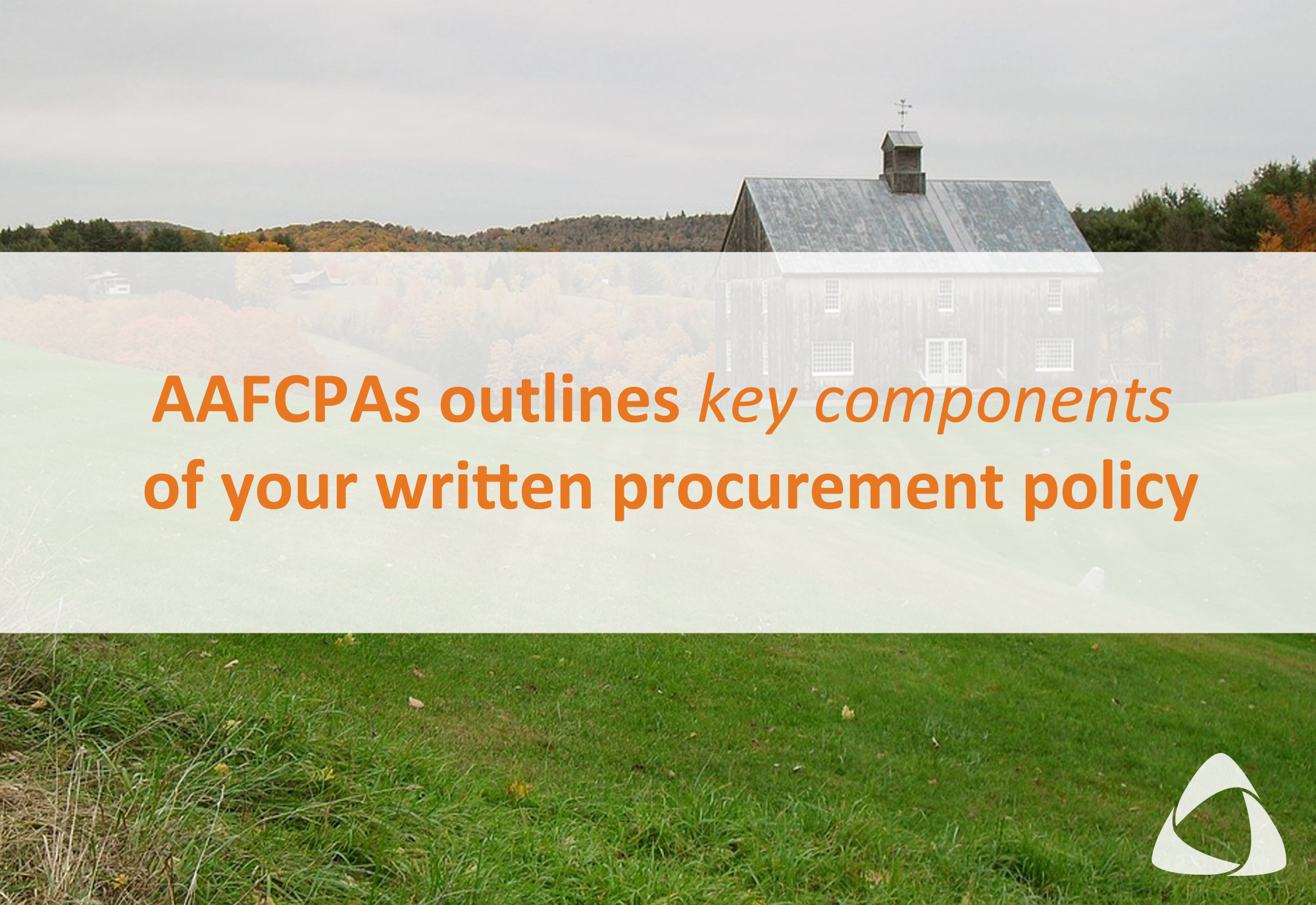Guidance on How to Comply with Procurement Standards Under the Uniform Guidance
 In December 2013, the Office of Management and Budget (OMB) issued the new Uniform Guidance (UG), which includes comprehensive reform rules affecting all nonprofits receiving federal grants and contracts. One of the areas of significant change under the UG is the procurement standards, a component of Subpart D, Post-Award Requirements, contained in Sections 200.317 through 200.326. These sections describe the applicable procurement standards, the methods of procurements to be followed, and details of specific items that must be included within contracts under federal awards.
In December 2013, the Office of Management and Budget (OMB) issued the new Uniform Guidance (UG), which includes comprehensive reform rules affecting all nonprofits receiving federal grants and contracts. One of the areas of significant change under the UG is the procurement standards, a component of Subpart D, Post-Award Requirements, contained in Sections 200.317 through 200.326. These sections describe the applicable procurement standards, the methods of procurements to be followed, and details of specific items that must be included within contracts under federal awards.
The major changes for the procurement standards include: a new provision covering conflict of interest with parent, affiliate, or subsidiary organizations; a requirement that procurement records be maintained to sufficiently detail the history of the procurement; and “adequate” competition.
Written Procurement Policy Components
Organizations receiving Federal funds should maintain an effective procurement system and must have a written procurement policy and procedures that reflect the new UG standards.
Items to include in your written policy are as follow:
- Oversight to ensure that contractors perform in accordance with the terms and conditions of contracts;
- Standards of conduct covering: (1) conflict of interest and governing the performance of employees engaged in the procurement process, (2) organizational conflicts of interest for relationships with parent, affiliate, or subsidiary organizations (if any), and (3) disciplinary actions for violations of the procurement standards by employees, officers, or agents;
- Procedures to avoid acquisition of unnecessary or duplicative items;
- Efforts to use federal excess and surplus property in lieu of purchasing new equipment and property to reduce project costs;
- Contractor evaluation criteria and methods for determining source selection to ensure contracts are awarded only to responsible contractors who the have ability to perform successfully under the terms and conditions of a proposed procurement;
- Recordkeeping, including but not limited to: rational for the method of procurements, selection of contract type, contractor selections or rejections, and the basis for the contract price;
- Procedures to address issues arising out of procurements, such as: source evaluation, protests, disputes, and claims;
- Conduct of procurement and bid competition (full and open competition);
- An allowable method of procurement;
- Efforts to contract with small and minority businesses, women-owned business enterprises and labor surplus area firms; and
- Contract cost and price analysis.
When Does the Procurement Standard Go Into Effect?
The effective date for the Uniform Guidance (UG) is December 26, 2014. However, the OMB has provided for a grace period for non-federal entities to comply with the procurement standards in the UG. The grace period allows an extension for implementation of the new procurement rules for three additional full fiscal years after the effective date of the UG. Clients may discuss early adoption of the procurement standard with your AAFCPA partner.
What Do We Advise?
AAFCPAs advises our clients to review the new standards, determine the impact on your organization, and develop a plan for compliance. AAFCPAs is available to provide guidance on how your audit may be affected by the new UG, as well as to provide recommendations regarding best practices for grant compliance.
If you have questions regarding your procurement procedures, or need additional information regarding grant compliance, please contact your AAF Partner or Robin Kelley, CPA, CITP, CGMA, CSPM at 774.512.4011, rkelley@nullaafcpa.com.

